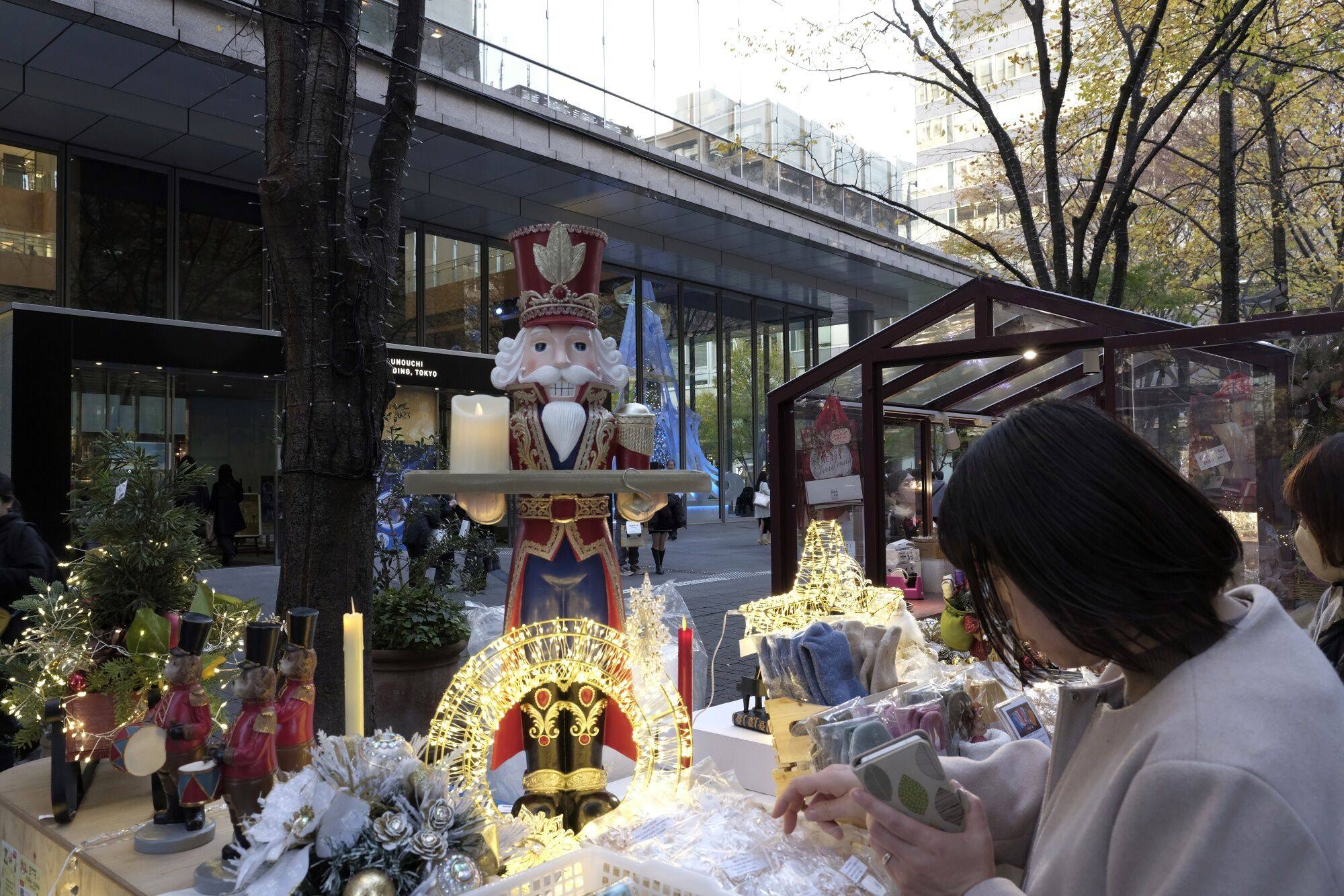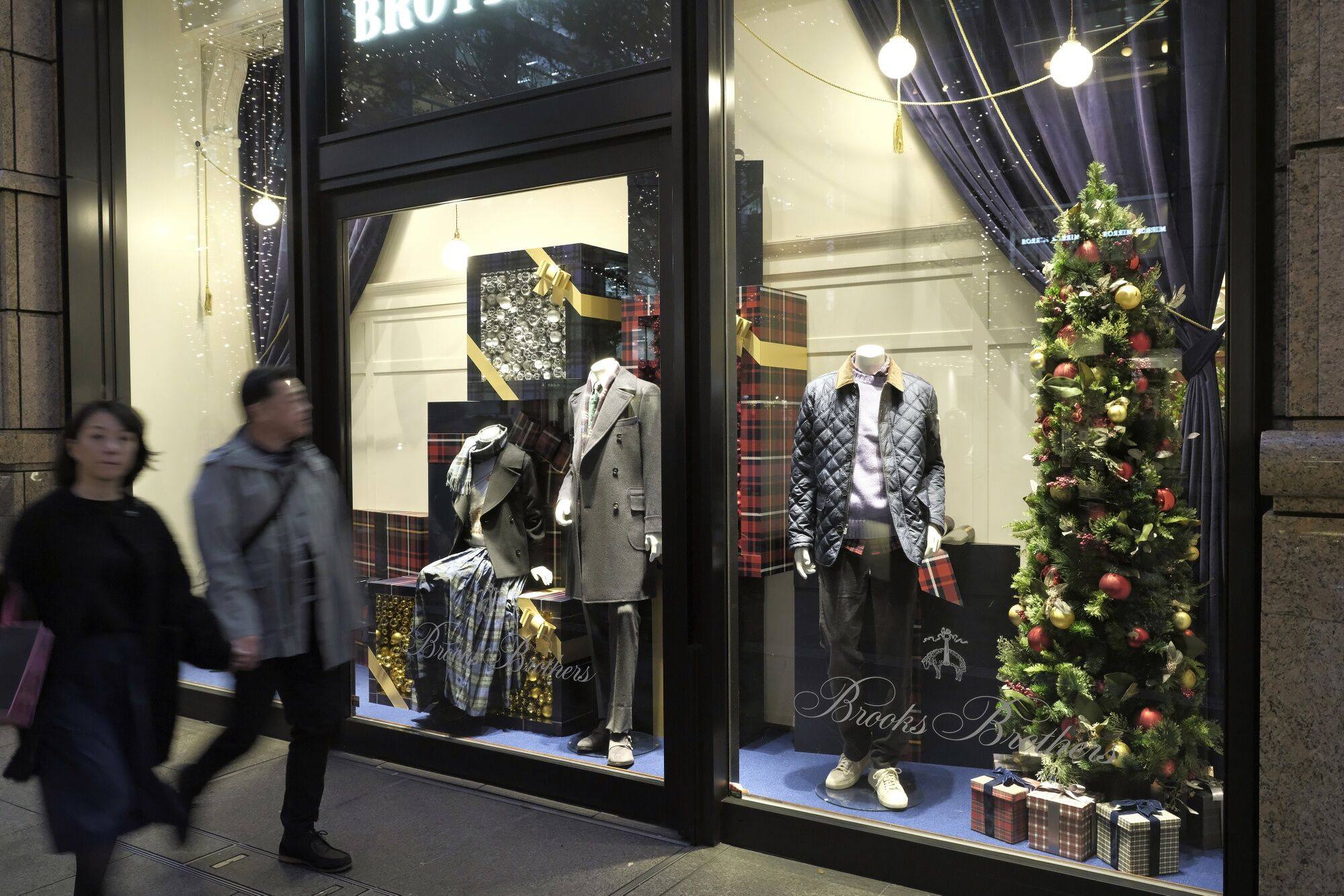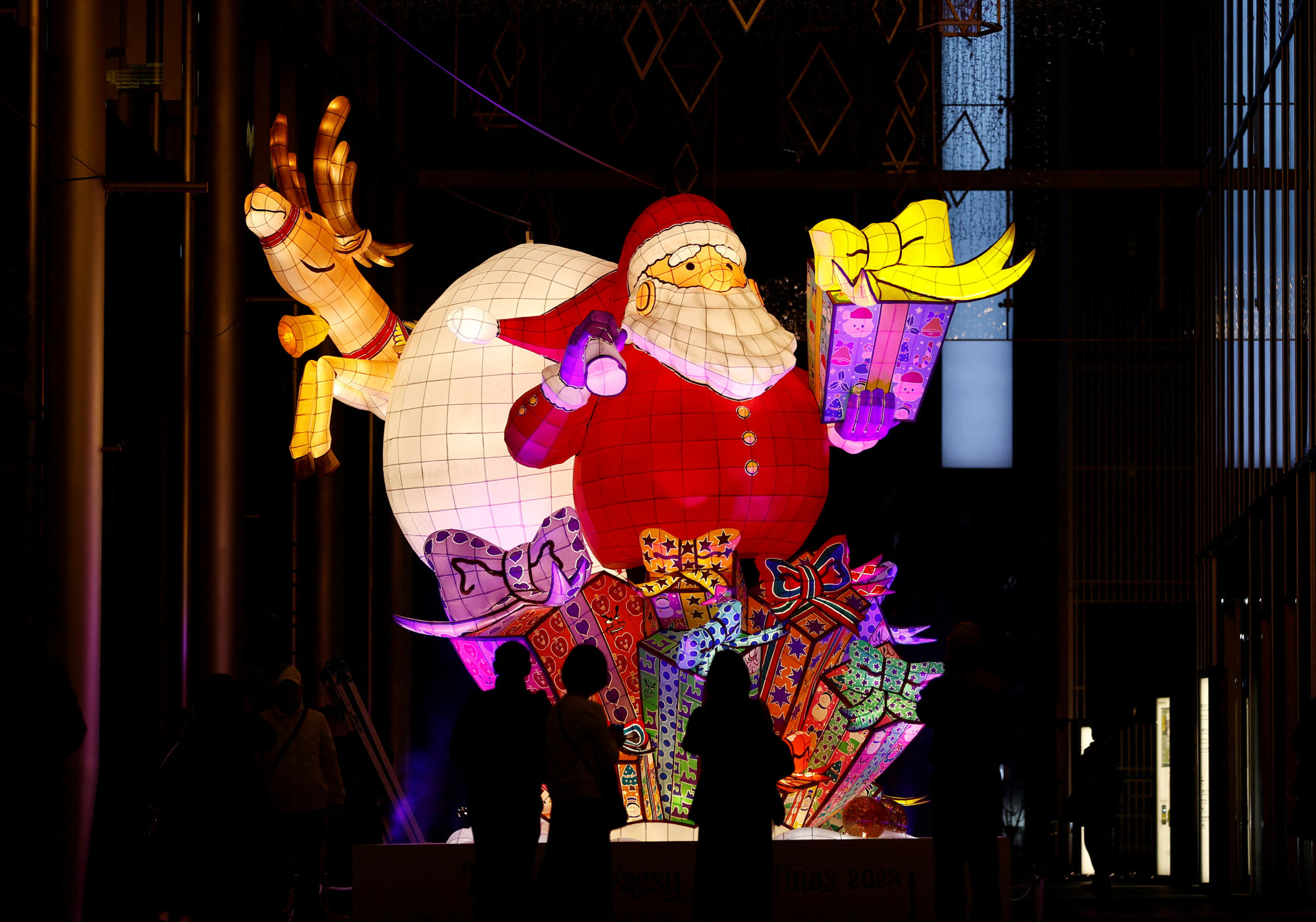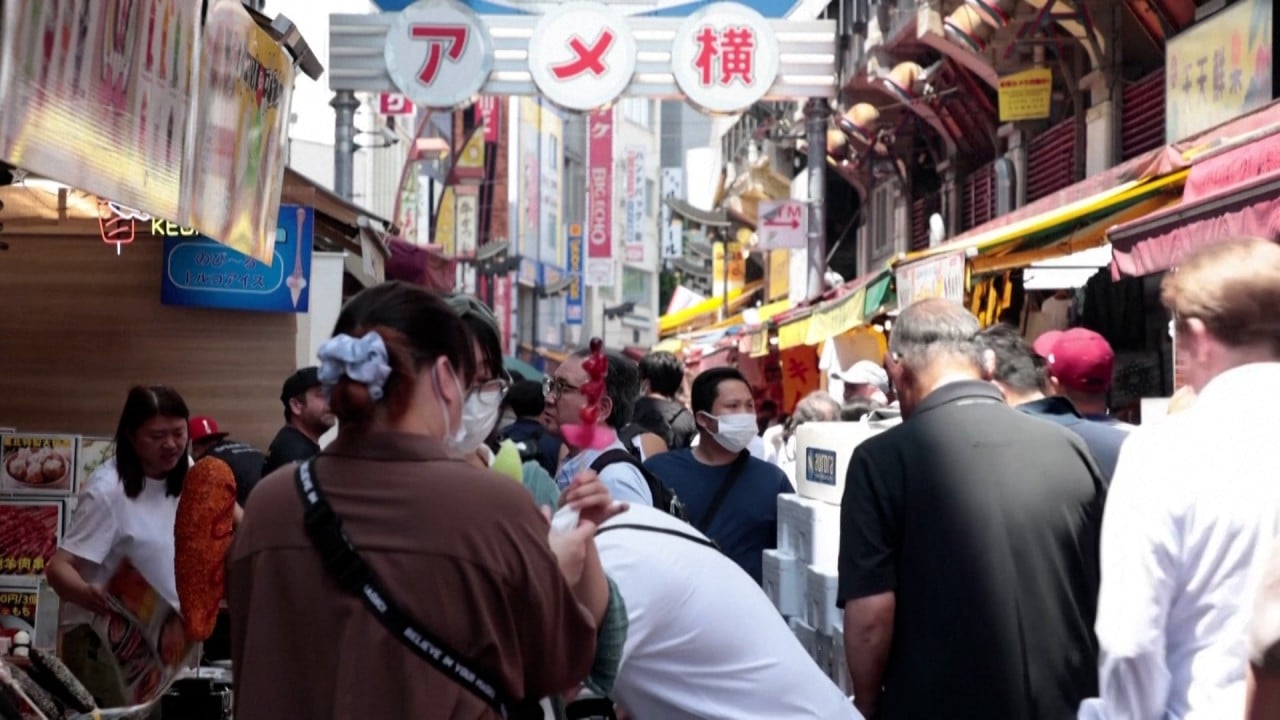Even the traditional bonenkai, or end-of-year company party, is out of favour, with many people saying they want the evening to end early to avoid spending so much, while employees who have worked gruelling hours in the run-up to the holidays say they plan to spend their time off sleeping in preparation for their return in the New Year.
Only a fraction of Japanese are Christian, but the nation embraced Christmas traditions with gusto decades ago as an economic opportunity. While the decorated trees, baubles and twinkling lights are still much in evidence in stores and restaurants this holiday season, there appears to be less ho, ho, ho in the air.

“My husband’s business has been steady this year, but we don’t know what will happen next year,” said Takako Tomura, a homemaker from Yokohama. “So we have decided to be a little more careful at Christmas.”
An annual party with their friends had been scaled back, she said, and while they had already bought a gift for their daughter, Tomura and her husband had decided not to buy presents for each other.
“We wanted to go somewhere, but the yen is so weak at the moment and flights and hotel prices are high, so we decided to have a short break instead of going to the beach,” she said. “It will be different and we hope that things are back to normal next year.”
Rising costs are visible throughout the Japanese economy. A study by private credit research firm Teikoku Databank published in early December found that Christmas cakes were more expensive than a year ago, with prices for the basic components of the festive staple rising steeply over the last year.
Of the 100 cake companies quizzed, 81 said they had been forced to lift their prices, with the average cost of cakes with a diameter of 15cm set at 4,468 yen (US$30.66), an increase of 325 yen on last year, or 7.8 per cent. That figure is also up more than 13 per cent over the 2021 price.
Japanese consumers and businesses have been grappling with worsening inflation over the last year, with basic cake ingredients – milk, sugar and eggs – rising around 20 per cent since this time last year. In all, the price of 30,000 food items have increased in the last 12 months.

To make matters worse, strawberries – a critical component of Japanese Christmas cakes – are as much as 50 per cent more expensive as crops were hit hard by a particularly hot summer, while outbreaks of bird flu in early December have raised new fears of an “egg shock” and shortages immediately ahead of the holidays, sending prices to record highs.
And while prices are rising, annual year-end bonuses are disappointing again, with just over 24 per cent of 11,396 companies surveyed by Teikoku Databank saying they would be giving staff larger bonuses than last year.
Some 42 per cent kept bonuses unchanged and 13.8 per cent said they were handing out reduced bonuses. Just over 12 per cent said they were not able to pay any bonus this year, while the remaining firms did not provide an answer.
Shrinking bonuses appear to be reflected in parents’ plans for gifts this year, as well as travel plans over the holiday season.
The annual survey conducted by domestic toy giant Bandai Co has revealed that most children aged between three and 12 want to find a smartphone, tablet or other electronic devices under the Christmas tree this year.
The survey also found that parents expect to spend 7,718 yen on each child, down 243 yen from last year, with many citing rising costs of basic foodstuffs over the last year as the most important factor in their spending. Others said they were trying to save money for the year ahead, hinting at uncertainty over the direction of the economy.

Those same concerns will be cutting year-end parties short, with research conducted by Citizen Watch Co indicating that 40 per cent of employees want their company events to end by 9pm so they can go home. The online survey polled 400 working people in their 20s to 50s, with 17 per cent even suggesting that company parties conclude at 8pm.
“After a few years, when they could not have bonenkai because of the coronavirus, companies are planning events again – but things have changed for a lot of people,” said Hiromi Iuchi, who works for a trade association in Tokyo.
“I think lots of people have got out of the habit of going out and those that say they will be going to a company bonenkai say this year they will not go on to the traditional after-party in another bar before going on to karaoke or some other venue,” she said. “People are willing to go out for a couple of hours, but whether it is for financial or other reasons, they want to go home instead of going out all night.”
Nearly 26 per cent of the people responding to another poll, this one by Tokyo-based health goods manufacturer Tential Inc, said they wanted to avoid year-end parties entirely, while 41.6 per cent said they intended to sleep during the New Year period because they had been working so hard over the last year.

Analysts put that down to a number of factors, including business picking up as the pandemic waned, a hot summer that sapped people’s energy and, perhaps most significantly, worsening labour shortages that mean employees having to put in more hours to cover the shortfall.
Issei Izawa says he is hoping to catch up with friends at least once to celebrate over the holiday season, but his job in the events section of a hotel chain means that he is busy working at other people’s parties.
“We are all working extra hours because we don’t have enough staff and this month has been tiring,” he said. “Still, I’ve chosen to work as much as I can and take a holiday in January or February next year. But I know that on my few days off this month, all I will want to do is rest.”


